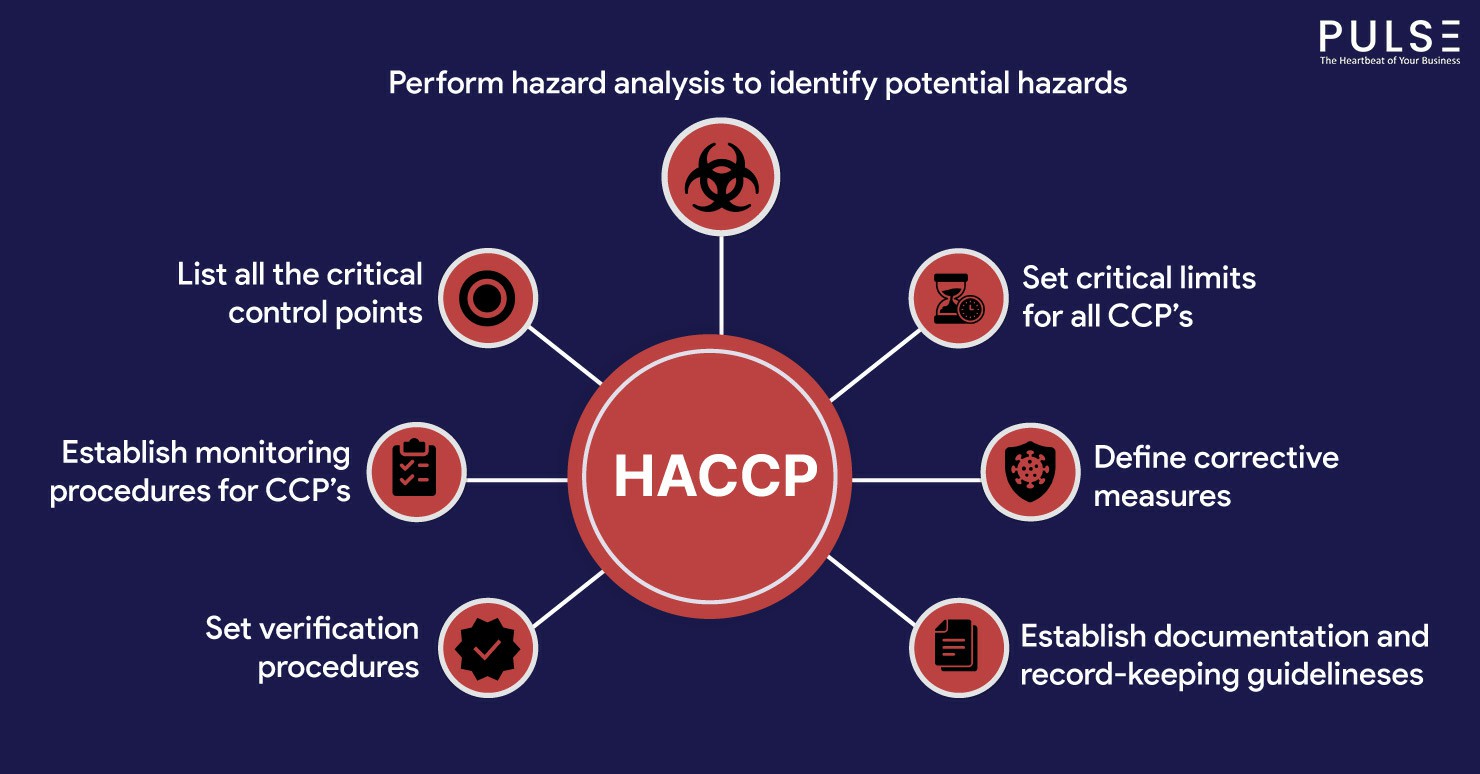HACCP Certification: Your Essential Guide to Food Safety Compliance in Dublin, Cork, Galway, Limerick, Waterford, and Belfast
In the vibrant food industry of Ireland, ensuring safety and compliance is paramount. Whether you operate a bustling restaurant in Dublin, a catering service in Cork, or a food manufacturing plant in Galway, HACCP training is essential for your business. This blog post will dive deep into the necessity of HACCP certification for food safety compliance across major cities in Ireland, including Limerick, Waterford, and Belfast.
What is HACCP?
The Hazard Analysis and Critical Control Point (HACCP) system is a preventive approach to food safety that identifies potential hazards in food production and handling processes. As an internationally recognized framework, HACCP training empowers food businesses to implement foundational safety protocols that comply with Irish and European Union food safety regulations.
Understanding the Core Principles of HACCP
The core principles of HACCP include:
- Conducting a hazard analysis: Identify potential biological, chemical, and physical hazards associated with food processing.
- Determining critical control points (CCPs): Identify points that must be controlled to prevent, eliminate, or reduce hazards.
- Establishing critical limits: Set maximum or minimum limits for each CCP to ensure safety.
- Monitoring procedures: Develop monitoring techniques to assess compliance with the critical limits.
- Corrective actions: Outline steps to take if critical limits are not met.
- Verification procedures: Validate that the HACCP system is functioning correctly.
- Record-keeping: Maintain comprehensive records of the HACCP processes.
The Importance of HACCP Training for Food Businesses
HACCP training offers myriad benefits to food businesses:
- Compliance with Regulations: HACCP certification ensures your business meets food safety laws in Ireland and the EU, helping you avoid costly penalties.
- Prevention of Foodborne Illnesses: By following HACCP principles, businesses can significantly reduce the risk of foodborne pathogens, safeguarding public health.
- Improved Hygiene Standards: Training can enhance your operational practices, resulting in better hygiene and food handling standards.
- Customer Trust: A HACCP certification communicates to your customers that you prioritize their safety, building loyalty and trust.
- Increased Efficiency: Implementing HACCP improves operational processes, often translating to cost savings.
Getting HACCP Certified: A Step-by-Step Guide
Becoming HACCP certified can be achieved through the following steps:
- Enroll in a HACCP training course: Many options, including online HACCP training, offer flexibility for food industry professionals.
- Understand the principles: Familiarize yourself with the core principles of HACCP and how they apply to your operations.
- Conduct a gap analysis: Review your current operations to identify any gaps in HACCP compliance.
- Develop a HACCP plan: Create an actionable plan based on your analysis, covering all necessary control points.
- Implement the plan: Put your plan into practice, ensuring all staff are adequately trained.
- Verification: Regularly verify your HACCP system, making adjustments as necessary to ensure effectiveness.
- Certification: Apply for HACCP certification through recognised certifying bodies.
Online vs. In-Person HACCP Training Courses
One of the biggest advantages of contemporary HACCP training is the availability of both online and in-person courses:
- Flexibility: Online courses provide convenience and can be completed at your own pace, making them ideal for busy managers and team leaders.
- Expert Interaction: In-person courses allow for face-to-face interaction, enabling immediate clarification of complex concepts.
Common HACCP Violations and How to Avoid Them
Like any framework, HACCP is susceptible to common pitfalls. Here are some frequent violations and tips to avoid them:
- Inadequate training: Ensure every staff member understands HACCP principles and procedures.
- Poor record-keeping: Maintain accurate and up-to-date records of your HACCP processes.
- Failure to reassess: Regularly review your HACCP plan to adapt to any changes in operations or regulations.
How HACCP Compliance Enhances Business Reputation
Achieving HACCP compliance does more than just meet regulatory standards; it elevates your business profile. Businesses that invest in >food safety gain recognition, attract more customers, and maintain loyal clientele. When most customers are aware of the dangers of foodborne illnesses, demonstrating a commitment to safety can significantly set you apart from competitors.
Conducting a HACCP Audit
A HACCP audit evaluates your current processes to ensure compliance with established standards. Here’s a basic outline for conducting your audit:
- Prepare by reviewing your HACCP plan: Ensure all documentation is accessible.
- Conduct site inspections: Observe processes in real time to ensure adherence.
- Assess corrective actions: Check that response protocols are in place for any non-conformance.
Conclusion & Call to Action
In a landscape where food safety can no longer be taken for granted, HACCP certification is not just beneficial—it's essential. From ensuring compliance with food regulations in Dublin to enhancing hygiene standards in catering businesses across Belfast, quality HACCP training is key. Are you ready to elevate your food safety standards and protect your reputation? Enroll in an HACCP training course today!



 349,500 Offered Certificates
349,500 Offered Certificates
 24/7 Online Training
24/7 Online Training
 Money Back Guarantee
Money Back Guarantee
 Fully Accredited Courses
Fully Accredited Courses
